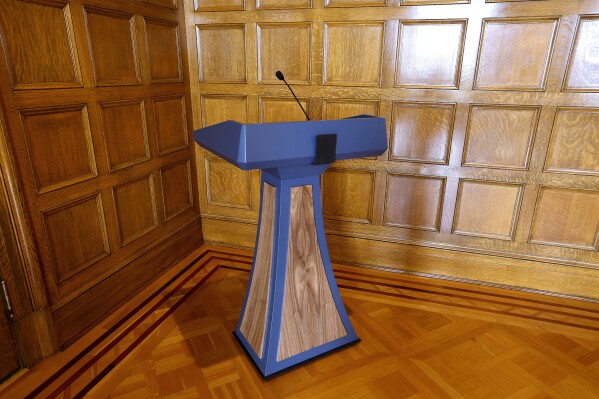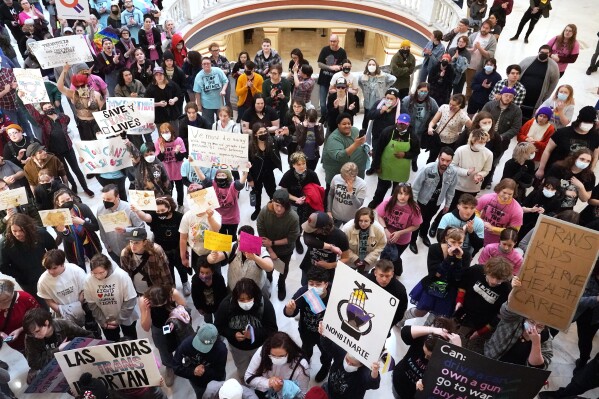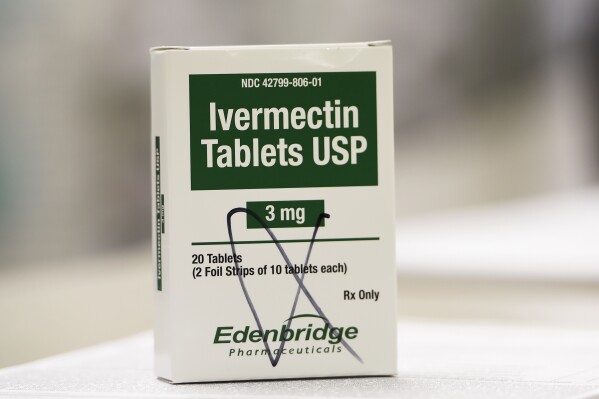Arkansas AG sets ballot language for proposal to drop sales tax on diapers, menstrual products
LITTLE ROCK, Ark. (AP) — Menstrual hygiene products and diapers are a step closer to being exempt from sales taxes in Arkansas after the state attorney general’s office approved a second attempt to get the issue on next year’s ballot.
Just over two weeks after rejecting the initial ballot language for ambiguity, Attorney General Tim Griffin on Tuesday gave the OK for organizers to begin the labor-intensive process of collecting enough valid signatures to put the issue on the ballot next year. If that happens and voters were to approve the measure, Arkansas would join 29 other states that have such an exemption.
The proposal is an attempt by the Arkansas Period Poverty Project to make tampons and other menstrual hygiene products more accessible to women and, according to the newly-approved language, would include diaper products for infants and adults as well by exempting such products from state and local sales taxes.
The group is represented by Little Rock attorney David Couch, who submitted the original ballot proposal as well as the revised version. He said Tuesday that with the first hurdle cleared he plans to hit the ground running, the Arkansas Democrat-Gazette reported.
 Scrutiny of Arkansas governor’s $19,000 lectern deepens after new records are released
Scrutiny of Arkansas governor’s $19,000 lectern deepens after new records are released
 Federal judge in Oklahoma clears the way for a ban on medical care for transgender young people
Federal judge in Oklahoma clears the way for a ban on medical care for transgender young people
 Arkansas jail inmates settle lawsuit with doctor who prescribed them ivermectin for COVID-19
Arkansas jail inmates settle lawsuit with doctor who prescribed them ivermectin for COVID-19
“Now that we have the approval of the attorney general,” Couch said, “we will format the petition itself and file a copy with the Arkansas secretary of state. After that’s done we can begin collecting signatures.”
To qualify for the ballot, organizers must collect valid signatures from 8% of the 907,037 registered voters who cast ballots in the 2022 gubernatorial election in Arkansas — 72,563 signatures. That process, Couch said, could begin as soon as this weekend. Saturday marks the project’s annual day to collect menstrual hygiene products, he said.
“I’m happy that we’ll have the petition ready so they can do that in connection with their drive to collect feminine hygiene products for people who can’t afford them,” Couch said.
According to the Tax Foundation, Arkansas’ average sales tax rate of 9.44% places the state in third place in the nation for the highest average sales tax, behind Tennessee’s 9.548% and Louisiana’s 9.547%.
Arkansas exempts products such as prescription drugs, vending machine sales and newspapers but still taxes menstrual hygiene products, “considering them luxury items,” the Arkansas Period Poverty Project said in a news release. The total revenue to the state on such products amounts to about .01%, but the tax burdens low-income residents who struggle to pay for food, shelter, clothing, transportation and other necessities, the release said.
The average lifetime cost for period products is $11,000, the group said, and 1 in 4 people who need the products struggle to afford them. The most recent city-based study on period poverty revealed that 46% of women were forced to choose between food and menstrual hygiene products, and “the Arkansas Period Poverty Project is working to eliminate this” in the state, the group said.
Couch said the benefit of exempting menstrual hygiene products and diapers from sales tax will be immediate and tangible to Arkansans who struggle the most financially.
“If you walk into the store and buy a $15 pack of diapers, that’s $1.50 savings,” he said. “That adds up fast, especially when it’s things you don’t have the option to not buy. Parents have to buy diapers. Some older people have to buy adult diapers if you’re incontinent, and if you’re a woman, you don’t have an option whether to buy feminine hygiene products or not.”
Couch said he is optimistic that organizers will be able to gather the required signatures in time to get the issue onto the ballot for voters in the November 2024 election.
“These aren’t luxury items,” Couch said. “These are necessities of life and we shouldn’t tax necessities of life.”
Disclaimer: The copyright of this article belongs to the original author. Reposting this article is solely for the purpose of information dissemination and does not constitute any investment advice. If there is any infringement, please contact us immediately. We will make corrections or deletions as necessary. Thank you.






